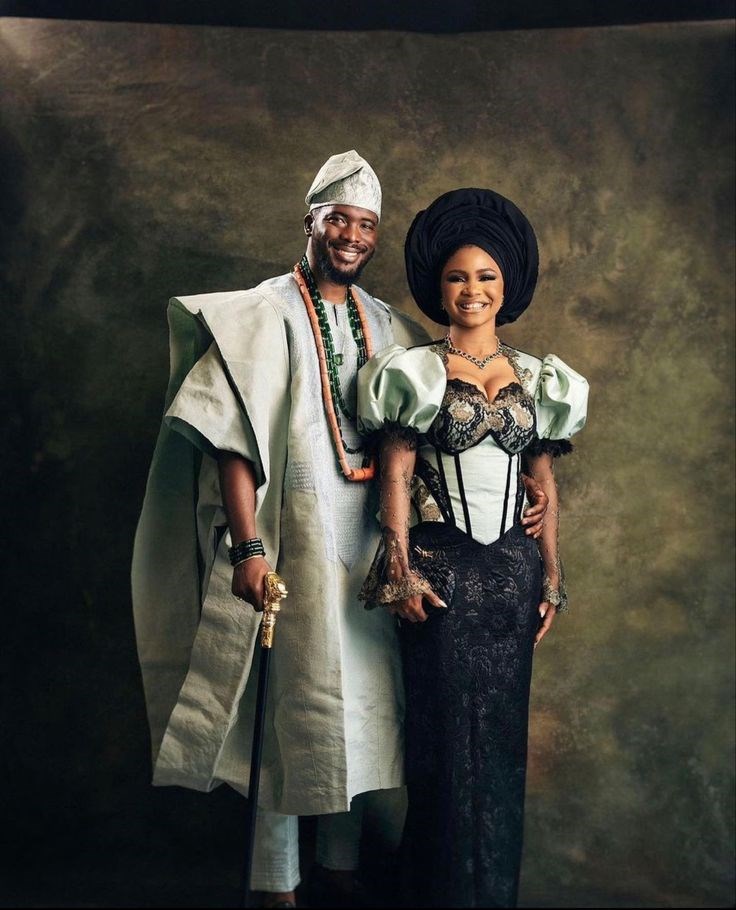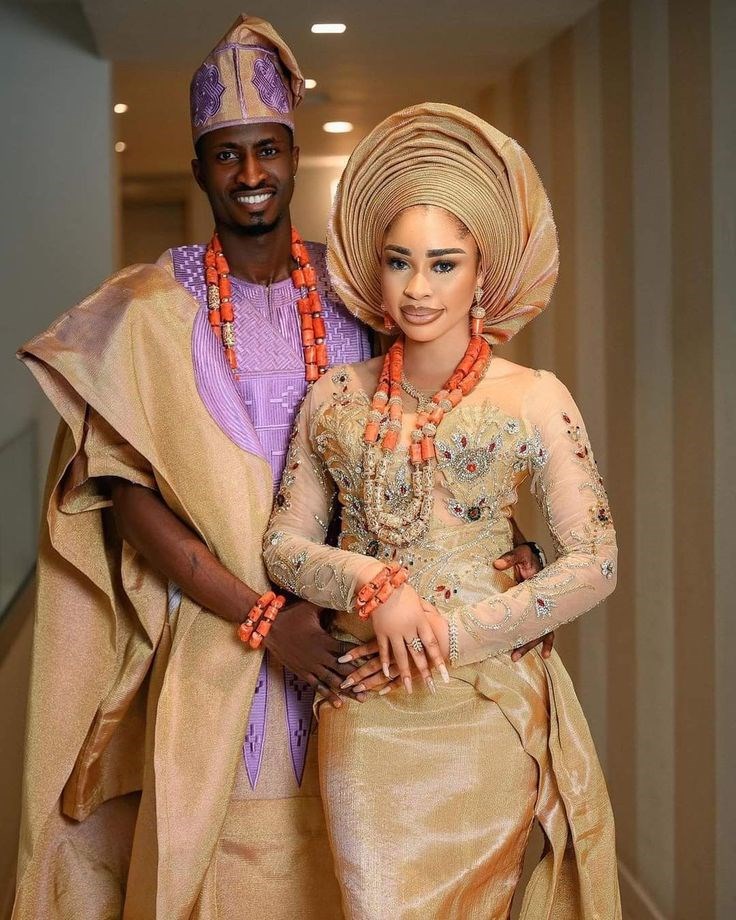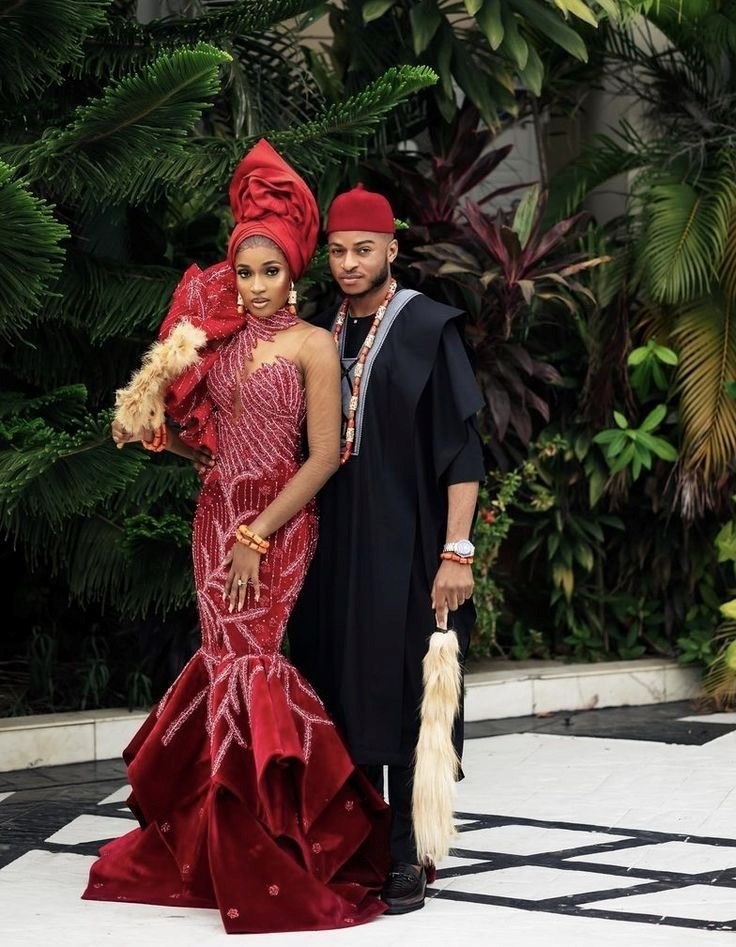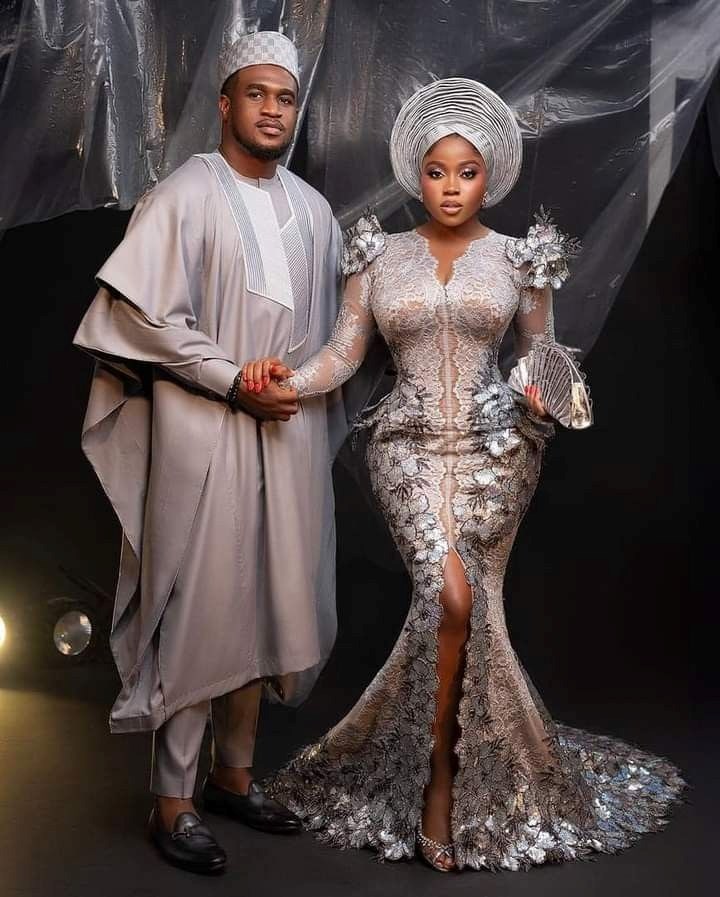WHEN it comes to weddings, few things are as enchanting and deeply rooted in cultural significance as traditional bridal attire. For Nigerian couples, embracing traditional attire is a beautiful way to honour heritage while celebrating their unique love story.
From the vibrant colours of the Yoruba, Igbo, and Hausa-Fulani cultures to the intricate beadwork and embroidery, Nigerian bridal attire is as diverse as it is stunning.
Yoruba weddings are renowned for their grandeur, and the traditional attire is no exception. For the bride, the Aso Ebi is a classic choice—usually a beautifully tailored wrapper and blouse set that often features luxurious fabrics like lace, satin, or brocade. The addition of an elaborately styled gele (head wrap) completes the look with a touch of regal sophistication.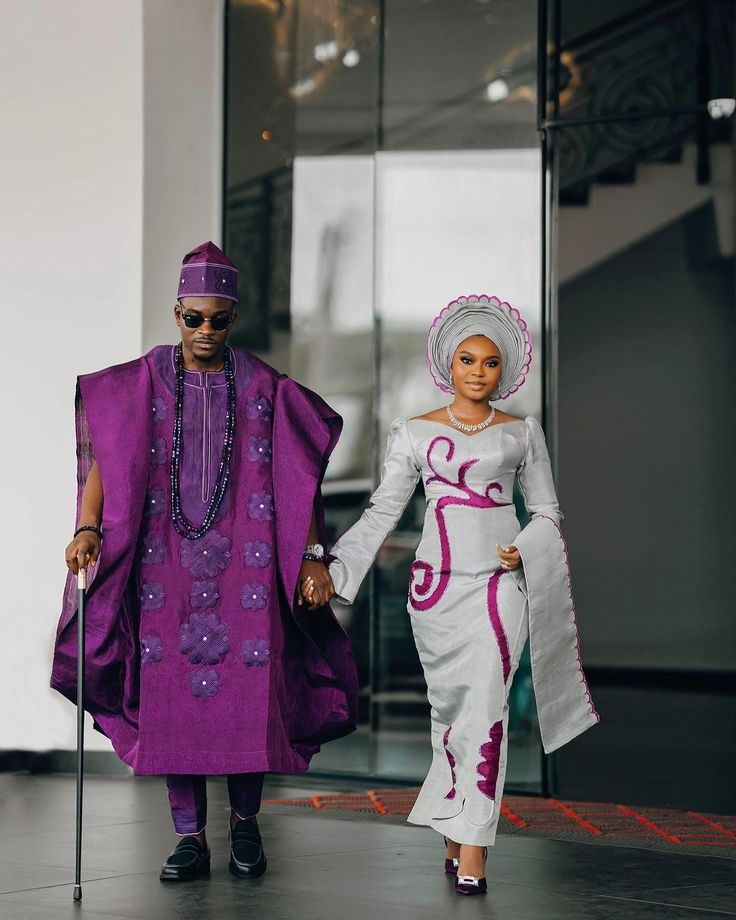
Grooms can opt for the Agbada, a flowing gown with intricate embroidery, paired with a matching cap (Fila). The Agbada is a statement piece that speaks of refinement and tradition, often complemented by elegant beadwork or embroidery.
Igbo traditional bridal attire is both vibrant and diverse. For the bride, the traditional George wrapper, paired with a fitted blouse, often adorned with colourful beadwork and intricate designs, is a popular choice. Adding a coral bead necklace (Oji) and a headpiece (Isiagu) provides a striking and memorable look.
Grooms can choose the classic Isiagu shirt with trousers, often embellished with beautiful embroidery. A traditional cap (Okpu Agwu) and a walking stick complete the ensemble, offering a distinguished and traditional appearance.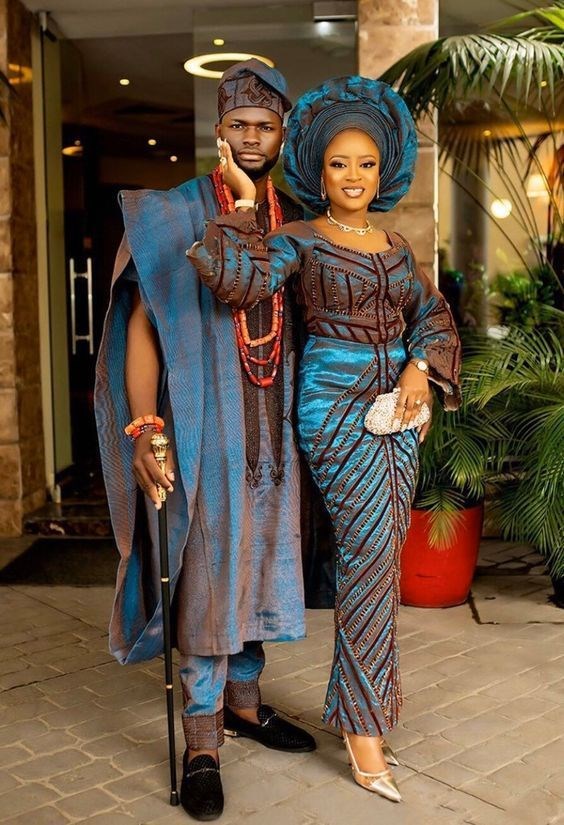
Hausa-Fulani weddings showcase elegance through the Shadda (a luxurious, embroidered fabric) for the bride. The Shadda is typically made into a fitted gown or a two-piece set that includes a wrapper and blouse. The look is often accessorized with elaborate gold jewellery and a beautifully styled headscarf.
For the groom, the Babariga, a wide-sleeved robe with a matching cap, offers a refined and traditional appearance. The Babariga is often crafted from high-quality fabrics and may feature intricate patterns or embroidery that adds to its regal allure.
Many Nigerian couples are choosing to blend elements from different cultures to create a unique and personalized bridal look. For instance, a Yoruba bride might incorporate Igbo beadwork into her outfit or a Hausa groom might wear a Yoruba cap with his Babariga. This fusion not only celebrates multiple cultures but also creates a distinctive and memorable appearance for the couple.
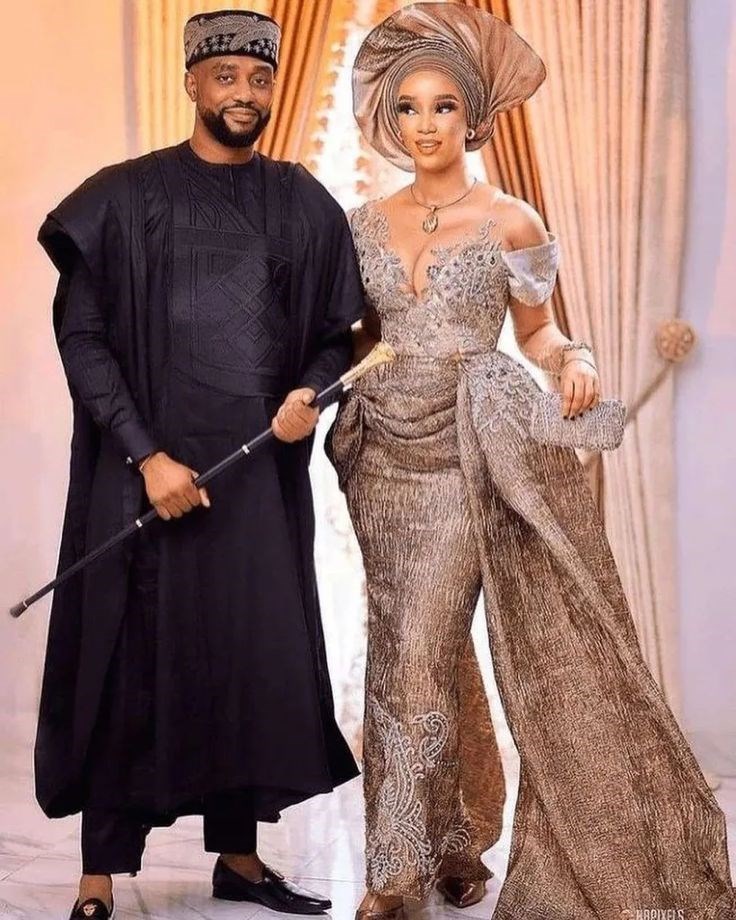
While traditional bridal attire remains timeless, many couples are incorporating modern twists to reflect their style. This can include experimenting with contemporary fabrics, updated silhouettes, or innovative colour combinations. For example, a bride might choose a sleek Aso Ebi design with modern fabric cuts, while the groom might opt for a tailored Agbada with a stylish twist.
Traditional bridal attire is more than just clothing—it's a celebration of heritage, love, and individuality. For Nigerian couples, the options are as diverse and stunning as the cultures they represent.
